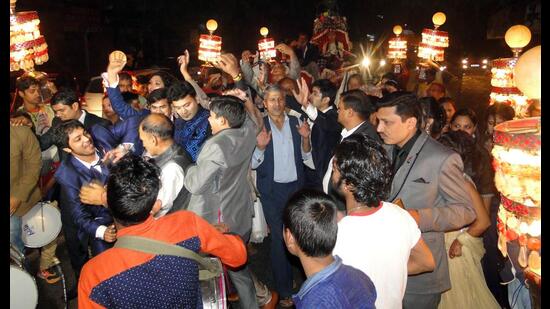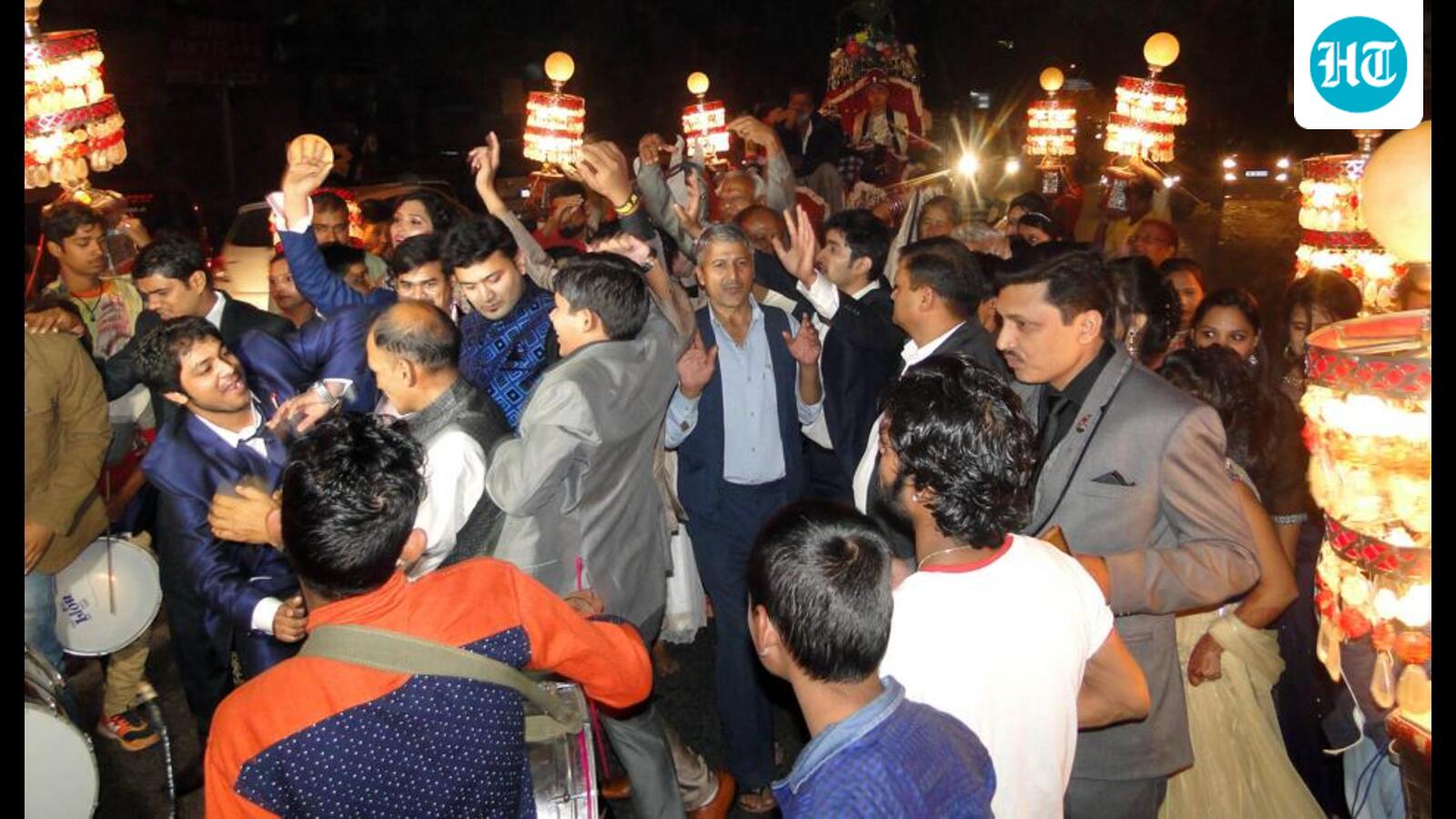The shaadi (wedding) season is upon us, a time when the Indian man is confused about whether to dress up like the long-gone gora saahibs (White overlords) or try and mimic some erstwhile maharaja’s attire. A suit or a sherwani — the choice rests on which version of Stockholm syndrome you are particularly prone to. Attending a wedding is like time travel. You meet people from your past — relatives who held you in their arms, cousins you grew up with, and that cheery uncle with paan stained teeth who grabbed your father’s ancestral land. And even the same judgemental guests who comment on the bride’s weight and the wedding feast alike.
 Attending a wedding is like time travel. You meet relatives who held you in their arms and cousins you grew up with. (HT Photo)
Attending a wedding is like time travel. You meet relatives who held you in their arms and cousins you grew up with. (HT Photo)
Wedding dates are almost always decided by astrologers, and hence converge at that particular time of the year that has a bunch of “auspicious dates”. For the rest of the year, it is back to dating apps and matrimonial websites for the “eligibles”.
“Thirty-six thousand weddings in Delhi today”, a headline throws a dizzying number at you, hinting at a murderous supply crunch of banquet halls, caterers, pool-sides, bandwalas, pandits, make-up artists, and, inevitably, roads one can drive on. It is entirely a man-made scarcity that jacks up prices so bad that it eats up middle-class life savings. “Beti ki shaadi ke liye bacha ke rakho (save for the daughter’s wedding),” goes the logic. Most of us are willing participants, though. Marriage is one of life’s biggest bets; so, your parents try to minimise any bad luck and pay through the nose just to have the nuptials on the “auspicious date”. The wedding industry runs on the unwritten rule of reciprocity: “How can you not attend their wedding? They attended yours!” Hence, everybody visits everybody unwillingly.
Recently, after the intergalactic drive from Gurgaon to Greater Noida, I managed to join the baraat (groom’s procession) of a wedding I was invited to. I felt right at home, as it start-stopped 78 times before reaching the venue. By the 75th time, the entire town had been apprised of the fact that “Aaj mere yaar ki shaadi hai (it’s my friend’s wedding today)”. Scrawny adolescents with heavy fancy lights balanced on their tiny heads watched me with expectant eyes, hoping I don’t spend all my tips on the performative enthusiasm of the dhol-wala.
The dancing contingent consisted of the groom’s batchmates from engineering college — not the guys from his B-school who clapping from the sides, cautiously appreciating the raw “undergrad” bonhomie. Life has changed since they learnt the concept of diminishing marginal utility. Soon enough, we reached the venue and the cousins in-charge of the fireworks contributed 51 AQI points each to pollution. The air was already thick with a wiry, Aviator-sporting band singer belting out out-of-context Daler Mehndi numbers. What heartfelt message can Tunak Tunak Tun convey to the bride?
The party felt like a kaleidoscope of our culture, history, and our insecurities. Shiny, sparkling people unfazed by the recent spurt in gold prices, out to prove all the stereotypes about their community. “Beta, how much salary do you get in-hand,” I was asked with a straight face. They don’t want to hear about your boring ESOPs. “Actually, I run a business,” I replied. There are barely any businessmen in my community. If you are one, it is assumed that you didn’t go to a good college or crack a government exam. And if you are a private-sector professional, the scramble is to figure out which company you work for and your designation.
A government servant commands the most swag at these weddings — with gold-rimmed specs, a neat side-parting of the hair, and, more often than not, clad in a safari suit. Relatives flock to him with their college-going kids to ask for his phone number. “Aapke jaisa hi banna chahta hai ye. Thoda guidance de dijiye (He wants to be a government officer like you, kindly guide him).” The man makes empty promises, while poking dahi kebabs on his quarter plate with a toothpick. One relative notices the plate emptying, and hollers at the nearest guy serving appetizers, “Arey boss, jeejaji ke liye hara bhara kebaab laao jaldi (Get brother-in-law some kebabs quick)!”
“AI course karo beta, bahut scope hai (Enrol for a course in Artificial Intelligence. Lots of potential there),” jeejaji says and wanders off with his fresh plate of dahi kebab. Meanwhile, the business guy has excused himself from the group, to receive updates about an unloading at his warehouse.
The real draw of the wedding is not the admirable toxicity of relatives, or the bride or the groom; it’s the food. As I grew up and learnt to not burn my tongue with the steamed coffee from the espresso machine, I realised the centre of gravity at a wedding is the chaat counter. Since then, I have never missed a wedding, and always dressed up like the Maharaja of Patiala.
Abhishek Asthana is a tech and media entrepreneur, and tweets as @gabbbarsingh. The views expressed are personal

